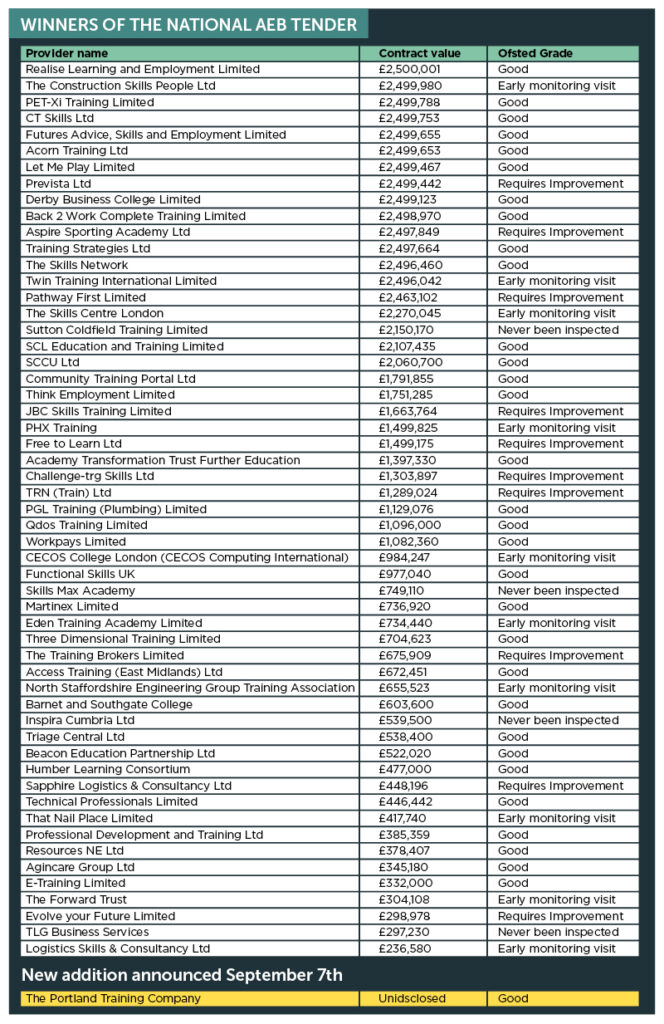The education select committee has endorsed the appointment of Sir Martyn Oliver as chief inspector of Ofsted.
Recruitment documents published by the committee show Oliver – one of the country’s leading trust bosses – described the inspectorate as going from being “seen as combative … to cold”.
He also revealed Ofsted chief inspector was not a role he had ever “proactively considered”, but applied because “many system leaders” asked him to.
Oliver, currently paid £180,000 as chief executive of the Outwood Grange Academies Trust, will take a £15,000 pay cut.
Four candidates were invited to interview after 29 applications for the role. Only two candidates were found to be appointable, the other believed to be Sir Ian Bauckham.
Oliver’s appointment will now be ratified by the Privy Council. He is due to start on January 1.
Quizzed by MPs on Tuesday, Oliver set out his main priorities for the role, including undertaking a “big listen” to the sector and getting more sector leaders inspecting.
In a report today, the commitee recognised Oliver’s “commitment to education and his breadth of experience both within schools and as a leader, with a particular focus on the most disadvantaged children.”
“However, given that safeguarding has been a key focus of this Committee, we hope that Sir Martyn will make this one of his priorities moving forward and we hope he can expand on his stated ambition to make Ofsted work holistically across different areas to support safeguarding.”
Oliver told MPs he had never been an inspector because he had been “too busy going behind the schools that Ofsted has placed into special measures and picking them up to have the time to go on and do it myself”.
The committee said it was “reassured that Sir Martyn has taken steps to engage with children’s services and the education sector more widely in preparation for this role”. Most of his experience has been in the schools sector.
One MP did not endorse new Ofsted chief
Kim Johnson, Labour MP for Liverpool Riverside, did not back the appointment.
“Instead of embracing the desperate demands for change, the appointment of Sir Martyn Oliver shows they are doubling down on their draconian approach to school inspections,” she said in a statement.
“This appointment shows a disturbing commitment by those in power to continue to wield Ofsted as a tool to punish schools for supporting the most vulnerable pupils.”
Oliver served as a commissioner on the government commission on race and ethnic disparities, which was heavily criticised for underplaying racism.
OGAT’s zero-tolerance approach to education has also been criticised: from its schools high exclusion rates to facing a legal challenge over its use of isolation booths. A pupil claimed they had spent almost a third of their time at school in isolation.
FE Week’s sister publication Schools Week also first revealed the trust had run “flattening the grass” assemblies where ex teachers said pupils were shouted at and humiliated.
‘Parents like one-word grades’
On Tuesday, Oliver told MPs he thought “parents do like the ability to describe their school simply”, in relation to questions over ditching one-word grades.
But he added that he was interested in views from parents and children about “how much faith” they “put upon the single-word judgment” as well as alternative ways of reporting outcomes.
“I’m not saying you shouldn’t have that one word, I’m asking what will you do [without it].”
Daniel Kebede, general secretary of the National Education Union, said: “As Martyn Oliver takes up the post of the new Chief Inspector of Ofsted, he will know that he is taking over an organisation in which the profession has lost trust.
“Real policy change is needed because Ofsted is out of touch with the realities school staff are juggling on the ground, especially as so many other family and children’s services have disappeared.”



